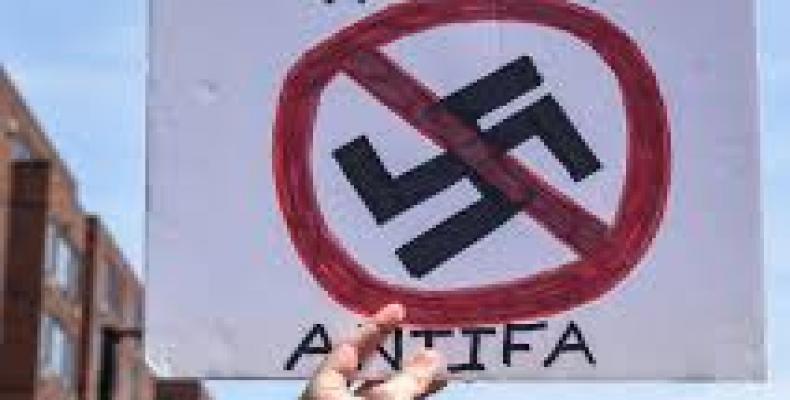Washington, May 31 (RHC)-- U.S. President Donald Trump said on Sunday that the United States would designate Antifa as a "terrorist organization," despite concerns by legal experts, who say the president has no legal authority for such a designation and question how it would be implemented.
Antifa, short for anti-fascists, is an umbrella term for a leftist movement with no designated leadership that is opposed to far-right ideologies. Some of its members confront neo-Nazis and white supremacist groups at demonstrations.
Trump's announcement came as he sought to place blame for angry protests -- some that have turned violent -- gripping the U.S. over the death of George Floyd, an unarmed Black man, and other acts of police brutality.
Without evidence, Trump and several top officials from his administration, including U.S. Attorney General William Barr, have blamed Antifa and groups it describes as "agitators" for taking over the protests in U.S. cities. "The violence instigated and carried out by Antifa and other similar groups in connection with the rioting is domestic terrorism and will be treated accordingly," Barr said in a statement on Sunday following the president's tweet.
But legal scholars and analysts say Trump has no legal authority to designate a domestic group in the same way it does foreign entities. "No current legal authority exists for designating domestic organizations as terrorist organisations," said Mary McCord, a former senior Justice Department official.
"Any attempt at such a designation would raise significant First Amendment concerns," McCord, who previously served in the Trump administration, added.
Experts note that Antifa is an amorphous movement, not an organization, raising questions on how even a legal designation would be enforced and handled. "Terrorism is an inherently political label, easily abused and misused," said ACLU National Security Project Director Hina Shamsi.
It is unclear whether the Trump administration is seriously pursuing the designation through formal channels, which would typically require coordination across multiple federal agencies. Any attempt to do so would likely meet legal challenges. Trump and other Republicans have made similar calls before.
Local governments, meanwhile, have largely blamed "outsiders" for the violence seen at protests nationwide. They say the "organised agitators" are flooding their cities not to call for justice but to cause destruction.
But the state and federal officials offered differing assessments of who the outsiders were, blaming left-wing extremists, far-right white nationalists and even suggesting the involvement of drug cartels. They have also not elaborated on how they have come to those conclusions.


